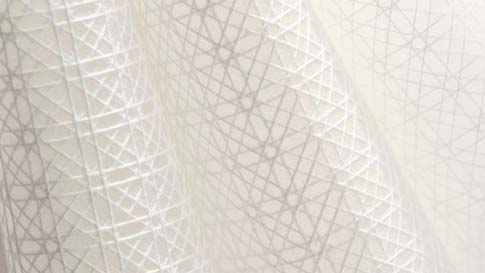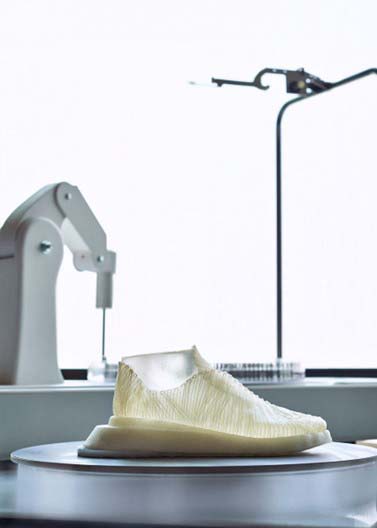
Biotechnology company Modern Synthesis has developed a biomaterial from bacterial fermentation that can be used to create a low-carbon alternative to traditional clothing fabrics. The biomaterial was developed in the company’s London lab by growing nanocellulose (a lightweight material produced by bacteria) on a framework of thread to create a new type of fabric.
Modern Synthesis founder Jen Keane says the company’s process is unique. “We take waste feedstocks, so sugars from a variety of sources—this could be fruit waste or other agricultural waste—and the bacteria grow on that sugar and naturally produce nanocellulose.” Nanocellulose fibers, which are very small, are eight times stronger than steel and stiffer than Kevlar, according to the designer.

“They’re really strong fibers and they’re so small that when they stick to themselves, because of their structure, they create these strong bonds,” Keane explained.
Modern Synthesis grows the nanocellulose on a framework of thread to create a material that looks similar to nylon, ripstop or a coated textile, but feels dry and warm (like cellulose or paper) to the touch.
“We’re able to create this new material that is partially a traditional textile and partially a biofilm —a hybrid, nonwoven composite material that is really fundamentally different from anything else that exists at the moment,” Keane said.
The process of creating the material can be adjusted by using different types of thread as the framework, some of which will be able to biodegrade while others can be recycled in a similar way to other cellulose.

The company believes that the biomaterial could become a versatile alternative to traditional textiles as it can be dyed and given different coatings. This could help minimize the carbon impact of the clothing industry, because the material creates significantly fewer emissions than traditional textiles.
Keane worked at Adidas for several years before founding Modern Synthesis together with synthetic biologist Ben Reeve and had previously created a custom prototype trainer using this kind of biomaterial.
Source: dezeen.com.
 TEXTILES.ORG
TEXTILES.ORG


